Judge says no presidential immunity for Trump over incitement of Jan. 6 Capitol attack
A federal judge says civil lawsuits seeking to hold Donald Trump accountable for the deadly Jan. 6, 2021 assault on the US Capitol can move forward, in a rare ruling that could see the former president prosecuted for inciting the insurrection.
Trump is the target of three lawsuits by Democratic members of Congress and two police officers who accuse him of being directly responsible for the violence perpetrated by his supporters when they stormed the Capitol building last year.
In a written ruling issued on Friday, Judge Amit Mehta of the US District Court for the District of Columbia said Trump did not enjoy presidential immunity in the case and that the lawsuits could proceed toward trial.
Trump's statements to his supporters before the riot are "the essence of civil conspiracy," Judge Mehta wrote in his 112-page opinion, indicating that the former president’s actions that day were "unofficial acts" that "entirely concern his efforts to remain in office for a second term."
The judge said Trump’s speech to thousands of his supporters on that day, urging them to march on the Capitol and fight the results of the election, can reasonably be viewed as a call for “collective action.”
"To deny a President immunity from civil damages is no small step," the judge wrote. "The court well understands the gravity of its decision."
Looming large in the litigation is a Supreme Court case from 1982 holding that presidents are shielded, or immune, from lawsuits over their official acts.
Shortly after Trump addressed his supporters, an angry crowd marched toward the US Congress, with hundreds breaking into the Capitol building and ransacking the offices of the elected representatives.
As the riot was unfolding, Trump took to Twitter to criticize his vice president, Mike Pence, for failing to comply with his orders to block certification of Joe Biden’s election victory, an act that Judge Mehta said amounted to a tacit agreement with those who attacked the Capitol.
Mehta's opinion is significant as it chips away at the protections of the presidency and the First Amendment based on Trump’s conduct that day, and could have further implications, including setting the ground to subpoena Trump and establishing where presidential immunities end.
The judge, however, agreed to dismiss the claims against three of Trump's allies who also spoke at the rally on January 6. Trump’s personal attorney Rudy Giuliani, his son Donald Trump Jr. and Republican Rep. Mo Brooks have been named as co-defendants in the lawsuits.
Trump’s actions that day are also under investigation by a select House committee, which is reviewing hundreds of pages of documents, text messages, and testimonies, some of which the lead investigator said the former president sought to conceal.
Trump has condemned the investigation as “a witch hunt.”
The former president and his co-defendants have argued that their statements before the Capitol riot were free speech protected by the US Constitution.
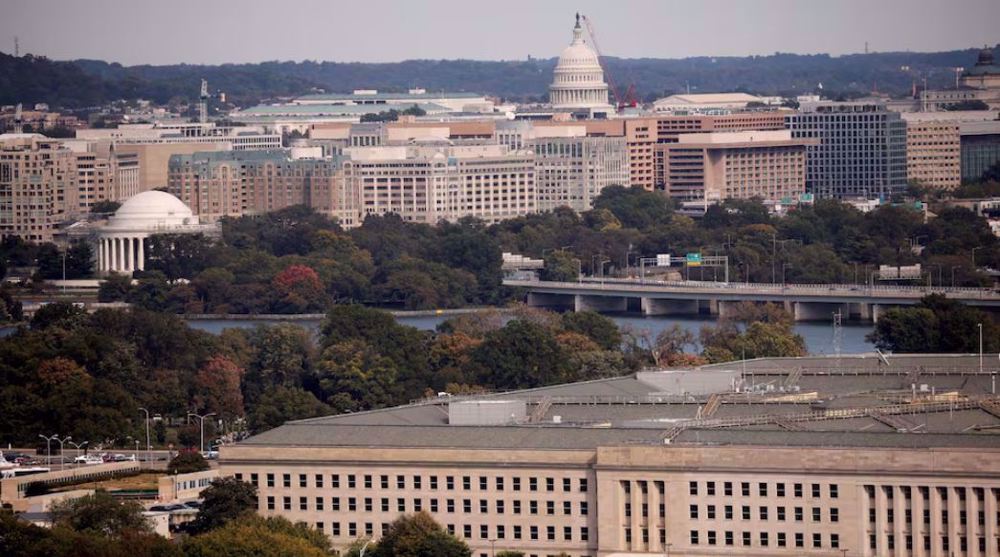
Pentagon officials placed on leave over 'unauthorized' Yemen leaks
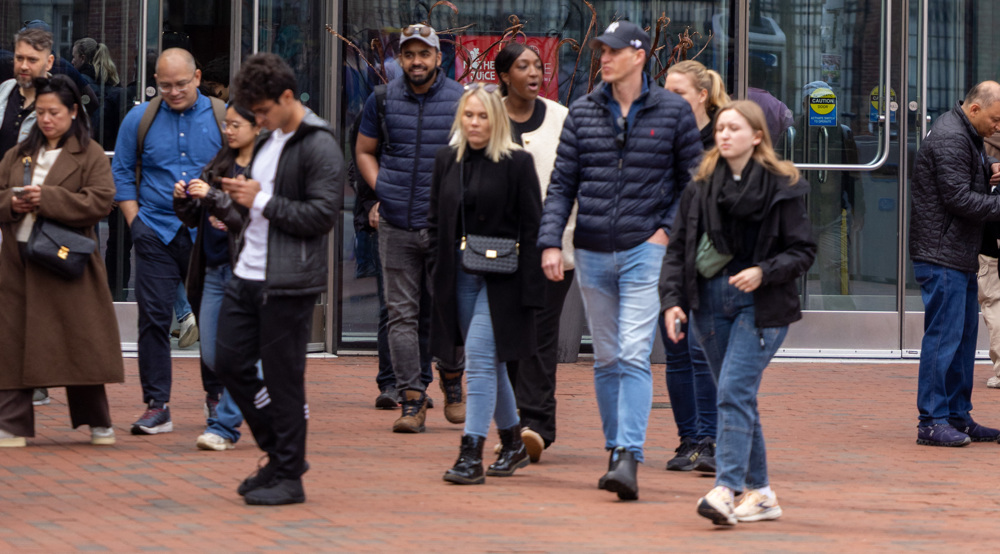
Harvard-Trump dispute deepens as US president threatens to remove tax exemption
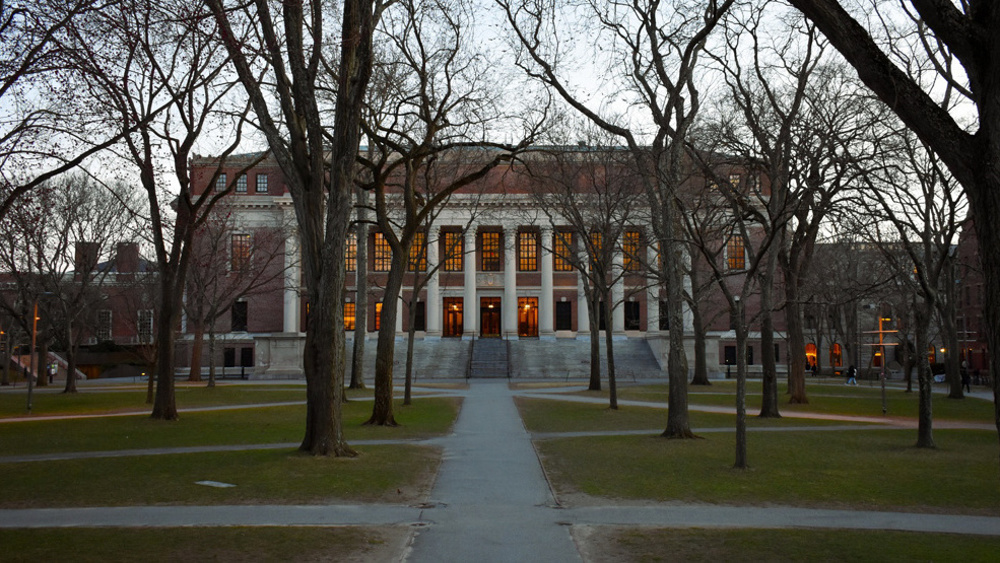
Harvard president says top university not to yield to federal demands over student rights
Iran’s enrichment ‘non-negotiable’, talks fruitless under pressure: FM
Pentagon officials placed on leave over 'unauthorized' Yemen leaks
Photojournalist killed in Israeli bombing of family home in Gaza
China says 'not afraid to fight' trade war with US
VIDEO | Press TV's news headlines
Iranian hospital uses angiography for brain vascular treatment without surgery
US to press EU to pull away from China in return for tariff cuts: Report
Muslim prisoners ‘singled out’ for violent treatment in England: Charity


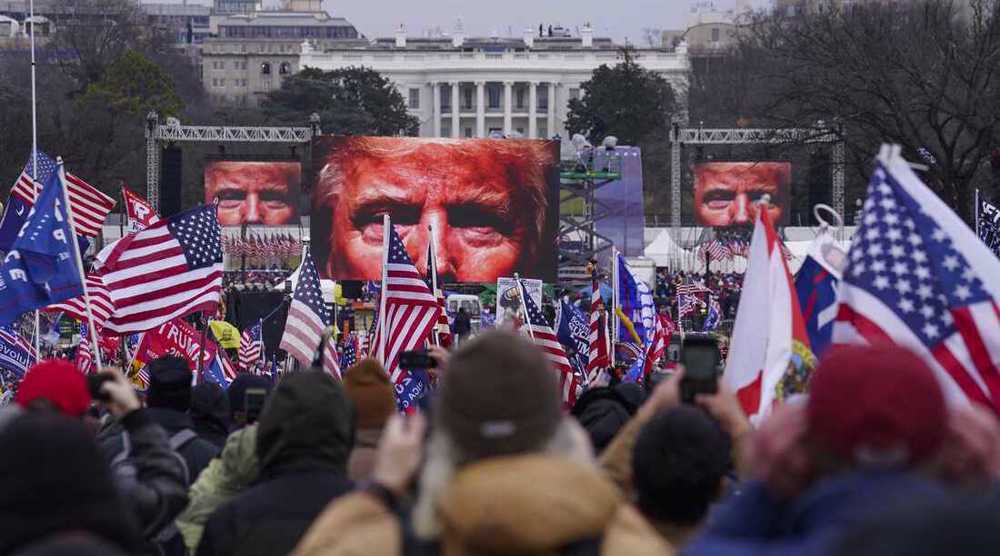
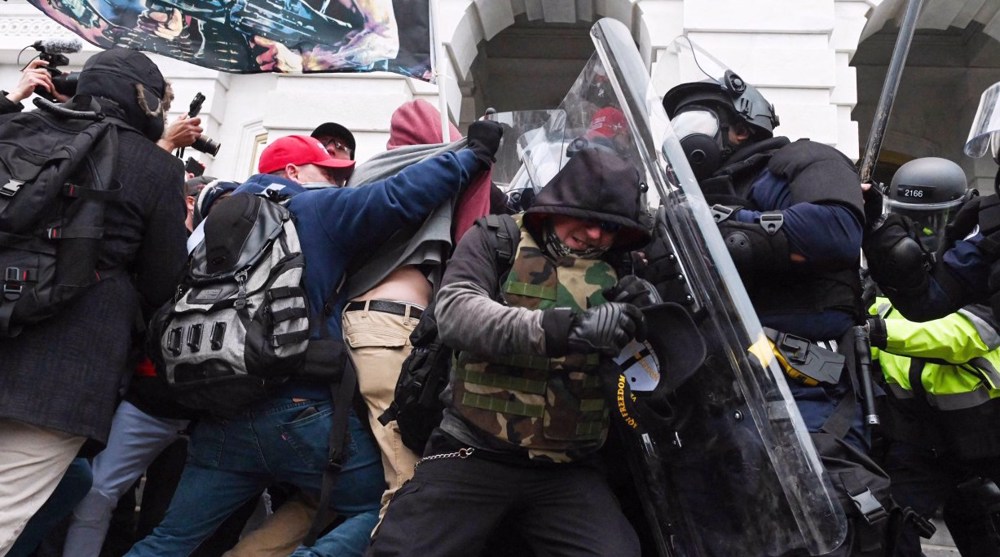
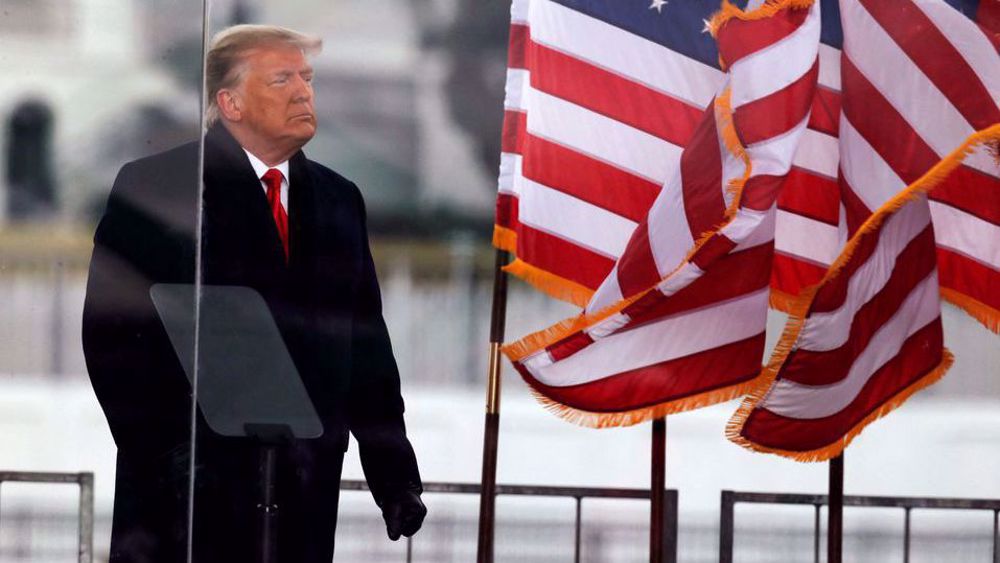



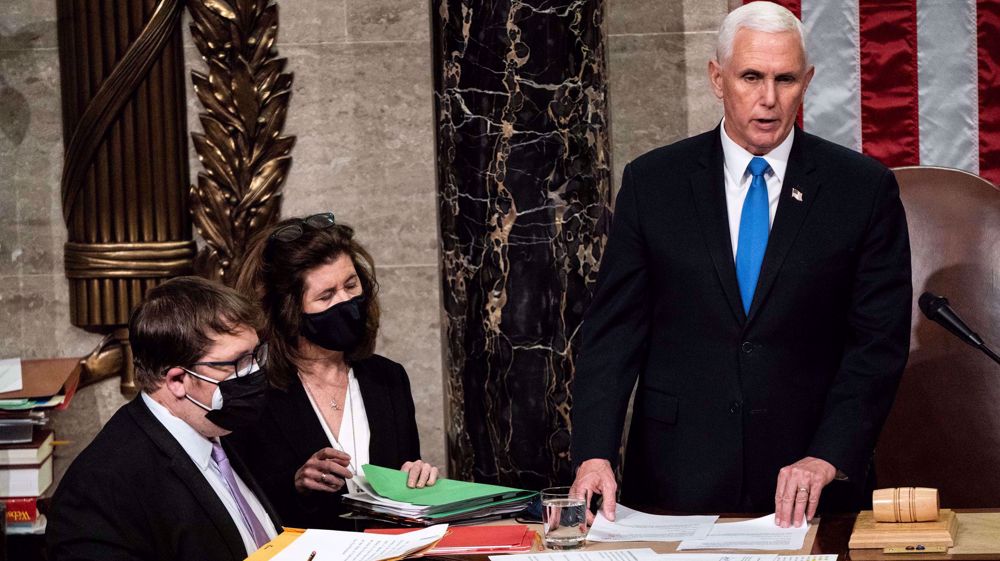
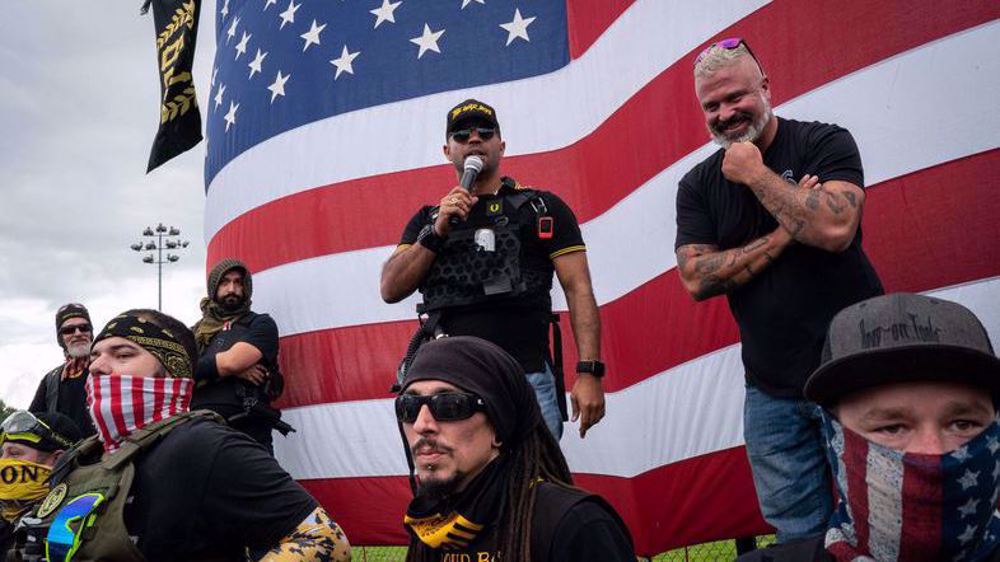
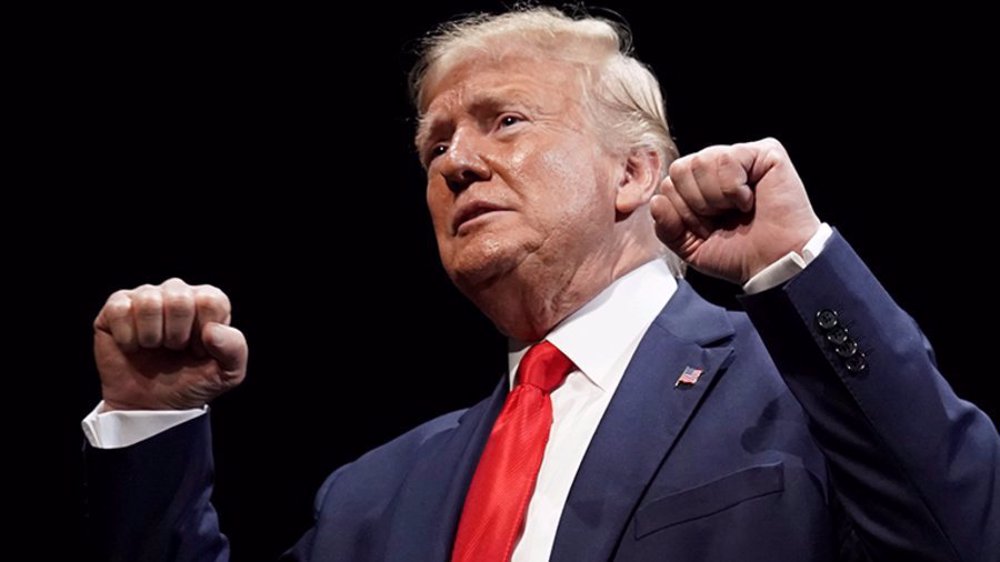
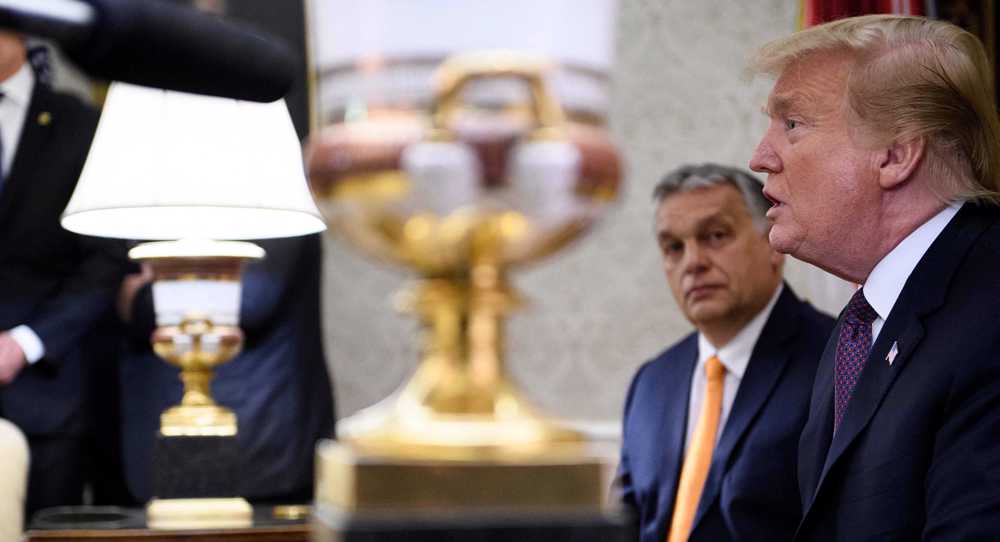
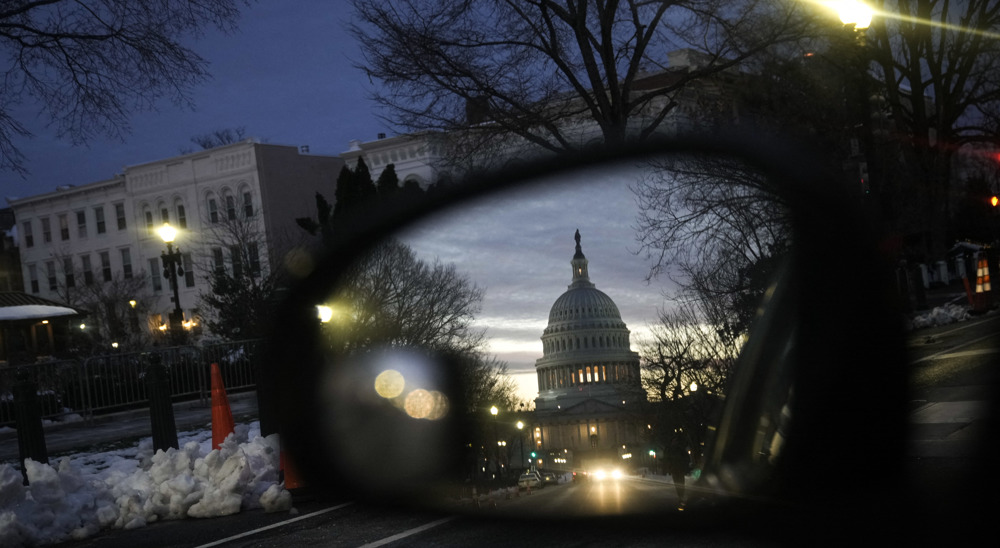

 This makes it easy to access the Press TV website
This makes it easy to access the Press TV website